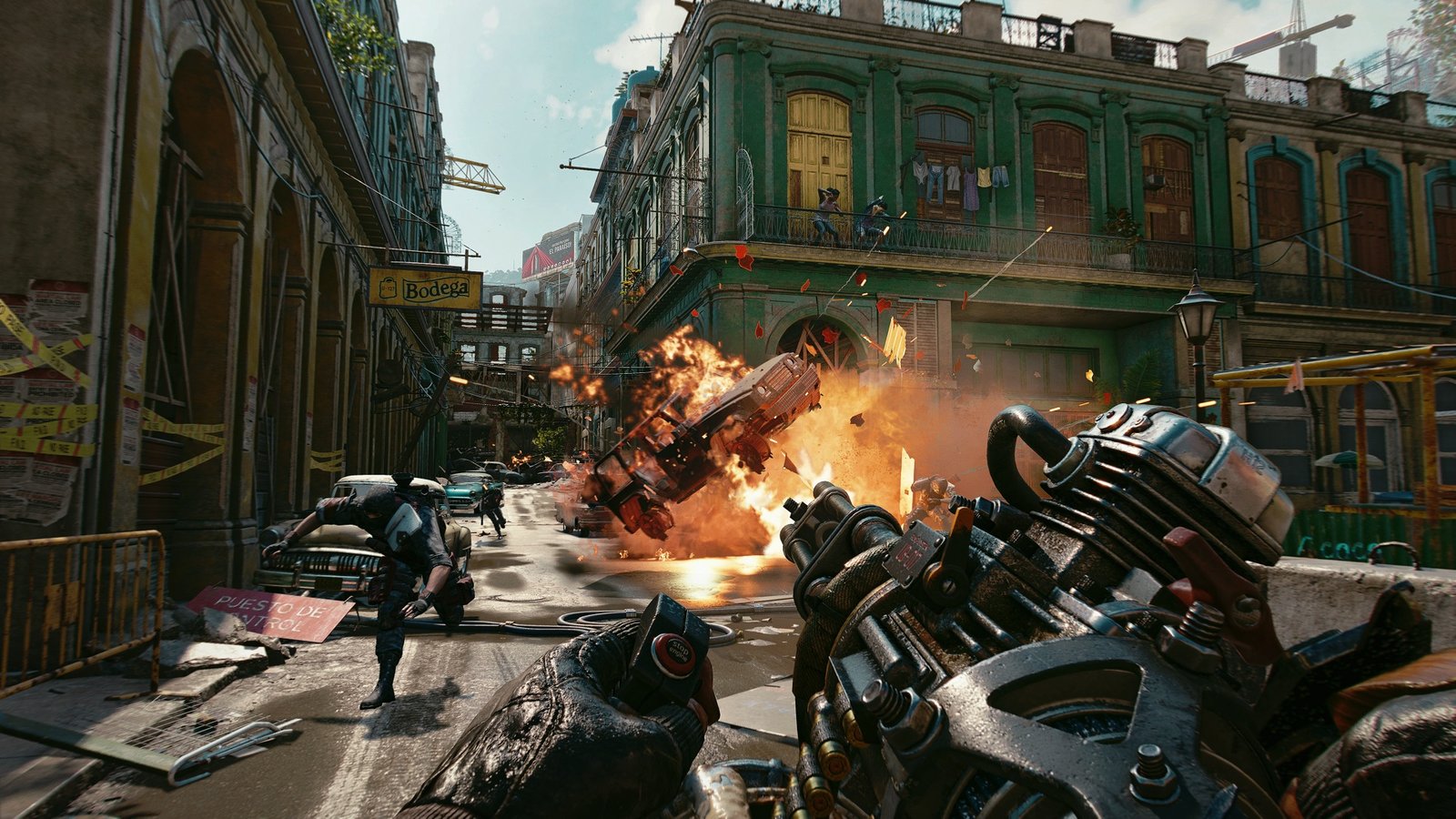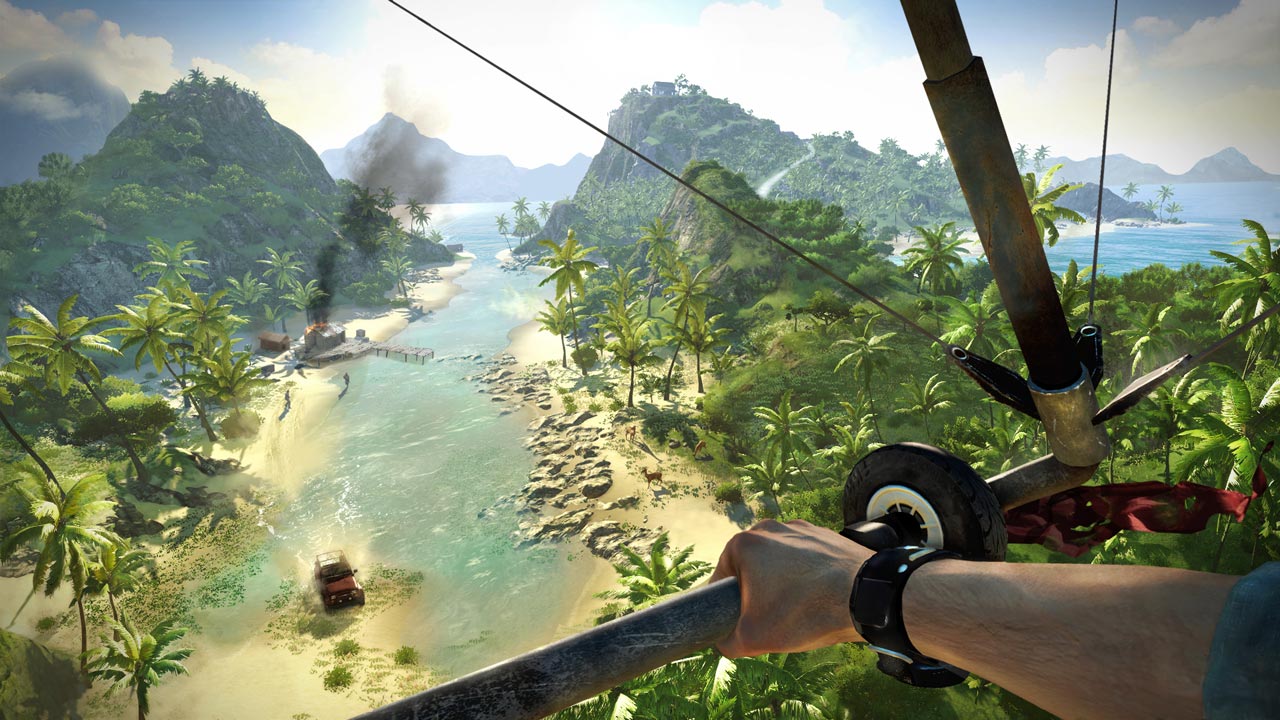

If decision fatigue strikes, Yara’s a beautiful spot to relax in, dictators aside. Fortunately, whichever choice you make, the gunplay is gleeful fun. Do you want to quietly dispatch enemies with a silenced rifle, or run in and harpoon everyone in sight? Launch missiles from your backpack, or send in your killer crocodile? Changing tack involves fiddling around in menus, and often, it’s just easiest to default to a gun you know and love, even as the game encourages you to experiment. However, with so many gear-based special abilities, ammo types, armoured backpacks, weapons and amusing animal companions, every situation presents a deluge of choices. It means enemy encounters require a little more consideration: the addition of medics, who can prevent kills and revive their companions, as well as soldiers scrambling to erect gun turrets or call in reinforcements, requires you to take a moment to assess each confrontation. His regime reflects him, too, with a far more efficient and strategic army than we’ve seen before. Esposito instead delivers a deliciously cruel, composed performance as Yara’s latest tyrant.


In another departure from form, there’s no flamboyantly eccentric villain. Oddly, the islanders’ resignation at their bleak long-term prospects helps bridge the tonal dissonance between the futility of war and the fun of flamethrowers – with an uncertain future ahead, it’s made clear that Dani has decided to enjoy herself, giving you permission to do the same. But then, we haven’t figured out a solution in real life, either. It’s a perceptive take, and a clever evolution of the usual saviour storyline, even if the game doesn’t really explore what should happen next. In Yara, an endless cycle of revolution and oppression has seen them grow weary, and from the start your fellow rebels warn you that removing Castillo guarantees nothing but a power vacuum. In earlier games, for example, Far Cry’s revolutionists have seemed naively optimistic.


 0 kommentar(er)
0 kommentar(er)
